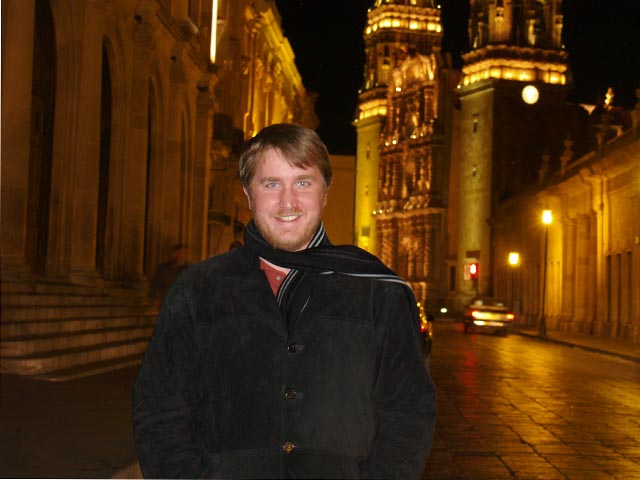
Alumnus credits interdisciplinary education with his success

Mastering engineering requires learning to engage in rigorous and precise thinking. Zachary Pirtle’s studies in the field took him even further—beyond a focus on the technological into deeper inquiry in a more fundamental realm.
“Engineering led me to philosophy,” says Pirtle, who earned bachelor’s degrees in mechanical engineering and philosophy at Arizona State University in 2007. He followed that with a master’s degree in civil and environmental engineering from Ira A. Fulton Schools of Engineering in 2009.
While in graduate school he earned a prestigious Fulbright scholarship that enables top students to study and do research abroad. He used it to spend much of the 2008–2009 academic year in Mexico, where he contributed to public discourse on the social and cultural impacts that the rise of nanotechnology could potentially have on that country.
Pirtle later earned a graduate fellowship to work with the National Academy of Engineering in Washington, D.C. There he supported the academy’s Center for Engineering, Ethics and Society. He researched and wrote about the potential societal implications of converting the nation’s power systems to “green” renewable-energy technologies.
He then worked as a consultant in the Washington, D.C. office of ASU’s Consortium for Science, Policy and Outcomes, where he authored a report that detailed the consensus among experts on the direction the country should take in developing innovative energy policies. In July of 2010, he began working as a Presidential Management Fellow at the National Aeronautics and Space Administration (NASA). As part of the Exploration Systems Mission Directorate, he’s applying his engineering and policy training to support new technology development projects NASA is undertaking to expand humanity’s reach into space.
“The only reason I’m able to bounce around among these various fields is because of the interdisciplinary education I got at ASU,” Pirtle says. “Being able to combine engineering and philosophy was very enriching. It’s given me a broader perspective, and people value that diverse set of skills. It’s going to greatly affect what I can contribute to society during my career.”
His interest in engineering has roots in the family lineage. His grandfather, Albert Pirtle, studied math at the Arizona State Teacher’s College—the precursor to ASU—before becoming an architectural detailer. His father, Randall Pirtle, an ASU grad, has been working in engineering at Honeywell Aerospace for more than 25 years. His brother, Trevor Pirtle, earned a bachelor’s degree in mechanical engineering from ASU and now works for Orbital Sciences in Chandler, Ariz.



































